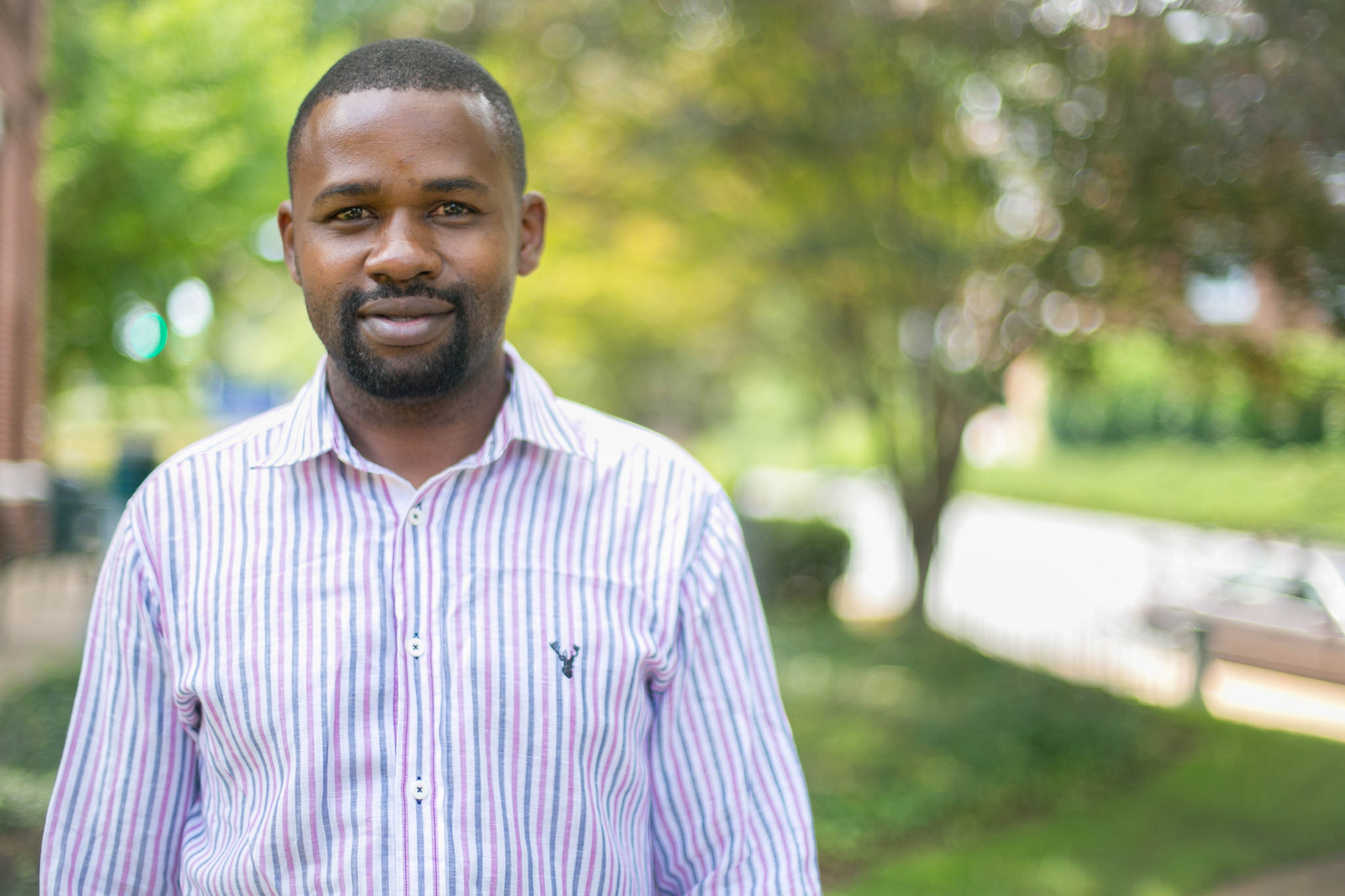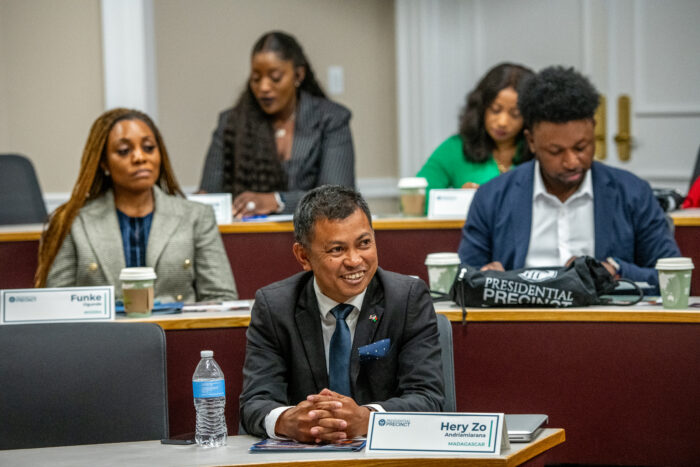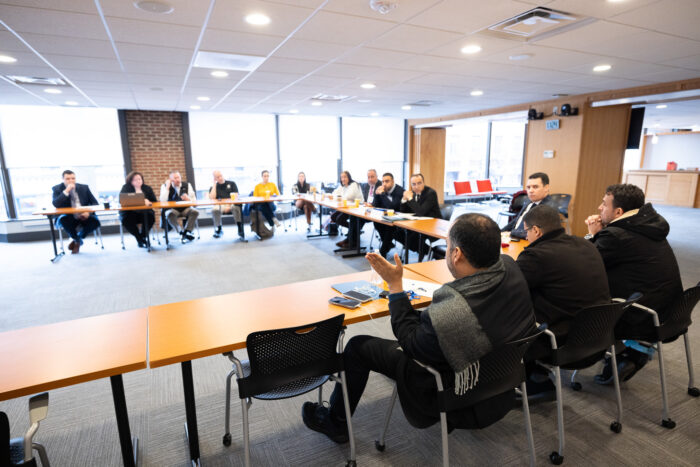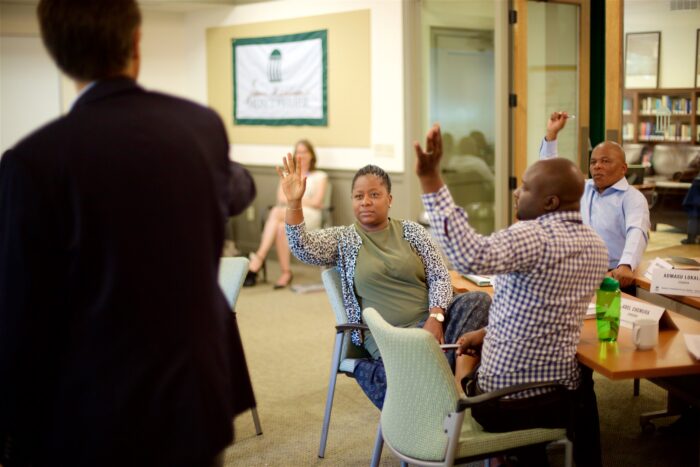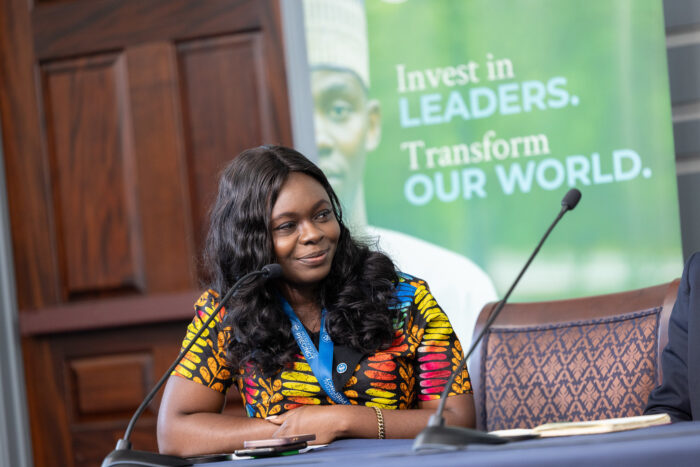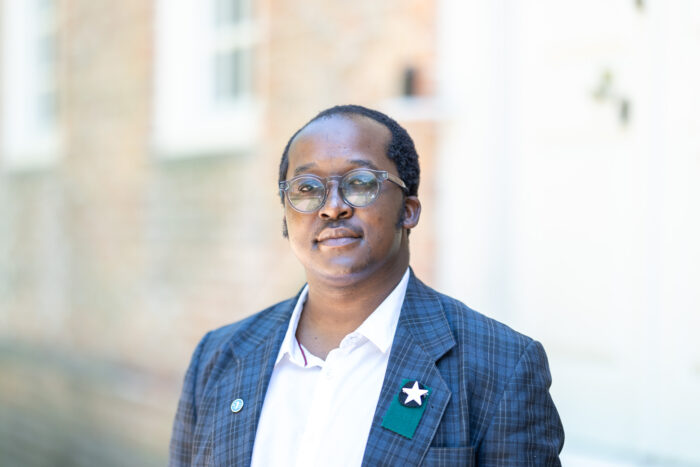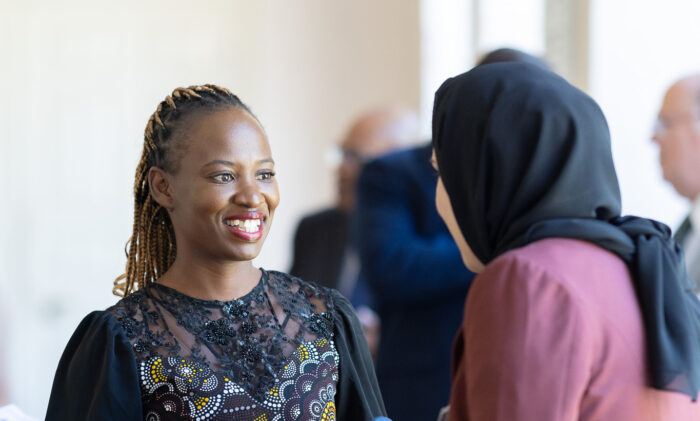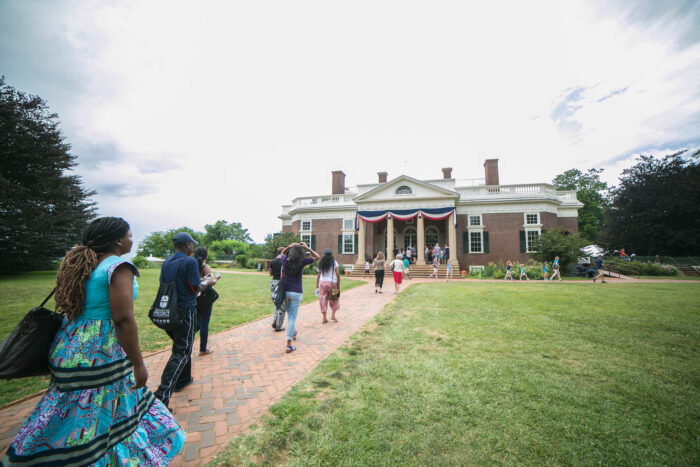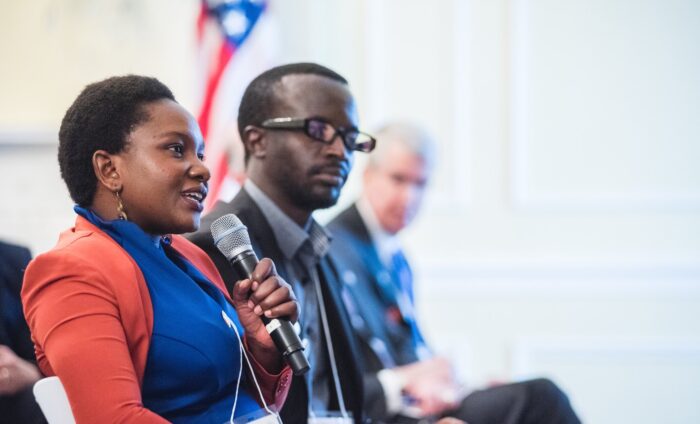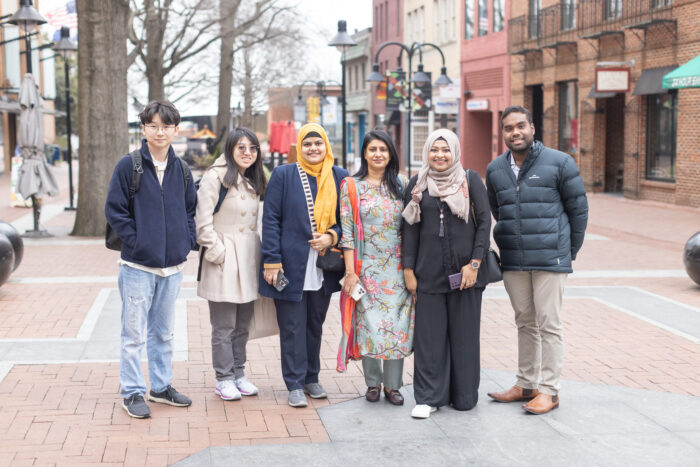It is Not Easy to Sing Alone: Lessons from YALI
The Power of Place
The question I keep asking young leaders from Africa is: What is Africa’s greatest challenge?
Monday, June 19 marked the official kick off the Mandela Washington Fellowship at the Presidential Precinct in Charlottesville, Virginia. It is a very personal journey for me and what an amazing place to be – evincing the full power of place, the full power of ideas.
But perhaps let me share a little bit about the Precinct. The Presidential Precinct is a consortium uniting two of America’s premier universities, The University of Virginia and The College of William & Mary; the homes of three founding fathers of the United States; Thomas Jefferson’s Monticello, James Madison’s Montpelier, and James Monroe’s Highland; and William Short’s Morven Farm. Located in the State of Virginia, the Presidential Precinct is an environment that fosters inspiration and enlightenment. It aspires to become a singular destination for international dialogue, critical thinking, and collaborative problem solving. Its motto is: The Power of Place, the Power of Ideas. What a place to be!
Lead in Truth, Lead with Integrity
The opening festivities took place at the historic newly renovated Rotunda with a warm welcome by Teresa Sullivan, the President of the University of Virginia. She is an outstanding and inspirational leader who challenged the young leaders to lead with integrity. Of everything that she said, what touched me the most is the following statement:
“You have to recover those parts of history that you are not proud of.”
She said this in reference to the ugly history of slavery in the Virginia and the work that the University is doing to build a memorial for African-Americans whose lives and dignity were sacrificed in building the United States. This touched me because this is the work that I am doing in Zimbabwe with the National Transitional Justice Working Group (NTJWG) in pushing for a comprehensive dealing with the past framework. It is not easy for a government accused to massive violations to have the courage to confront its own record and right it.
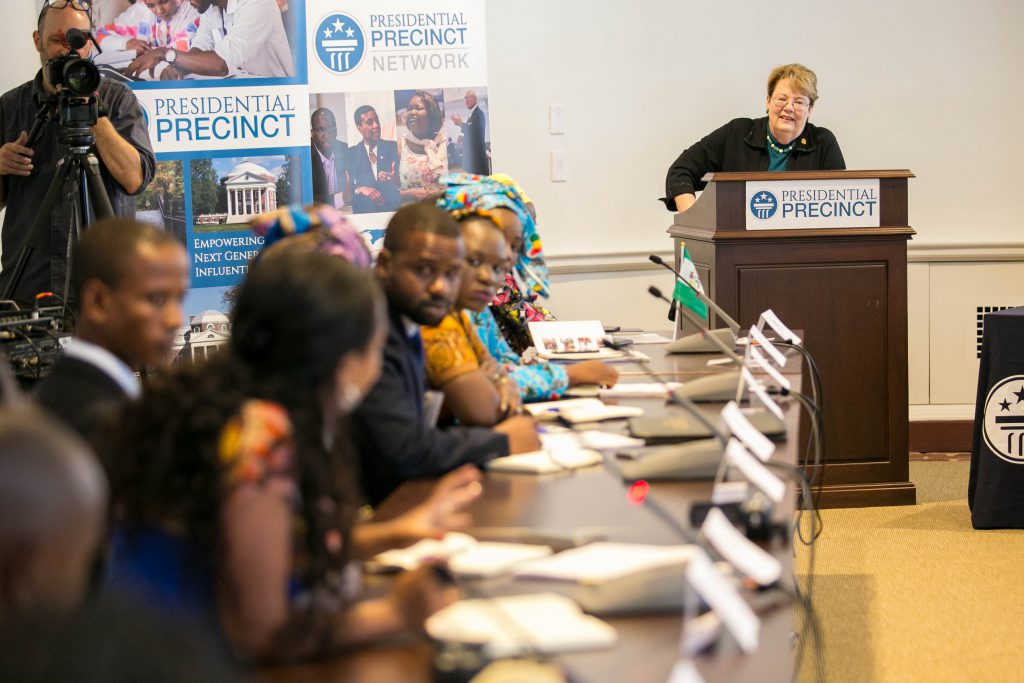
Keep Searching, Keep Going Further
The address by President Sullivan was followed by a roundtable discussion with Darden School of Business Professor Greg Fairchild who challenged the Fellows to reflect on why they were in the United States for the Fellowship. Fellows reflected on the question and shared some very important ingredients in the building of effective leaders.
I was asked by a fellow Fellow on what it was that I was seeking. I thought. I confessed.
“I find the fellowship to be the opportunity to step back, and learn from others, reflect on the lessons I learnt and perhaps refine my own philosophy on how I see paths to the solutions to the wicked problems that I work on every day of my life in Zimbabwe.”
Over the following few days, we would later learn what wicked problems Africa faces and get introduced to various tools to tackle them. Dr. Allan Stam would meet the fellows the following day and delve into the question of leadership as the art of getting things done. Malik Vaughan would come on the third day and introduce the design thinking toolkit. I was ready for that ride.
But back to the magic moment with Greg Fairchild during the opening session, Rebecca Ojedele from Nigeria said:
“I want my work to go beyond me.”
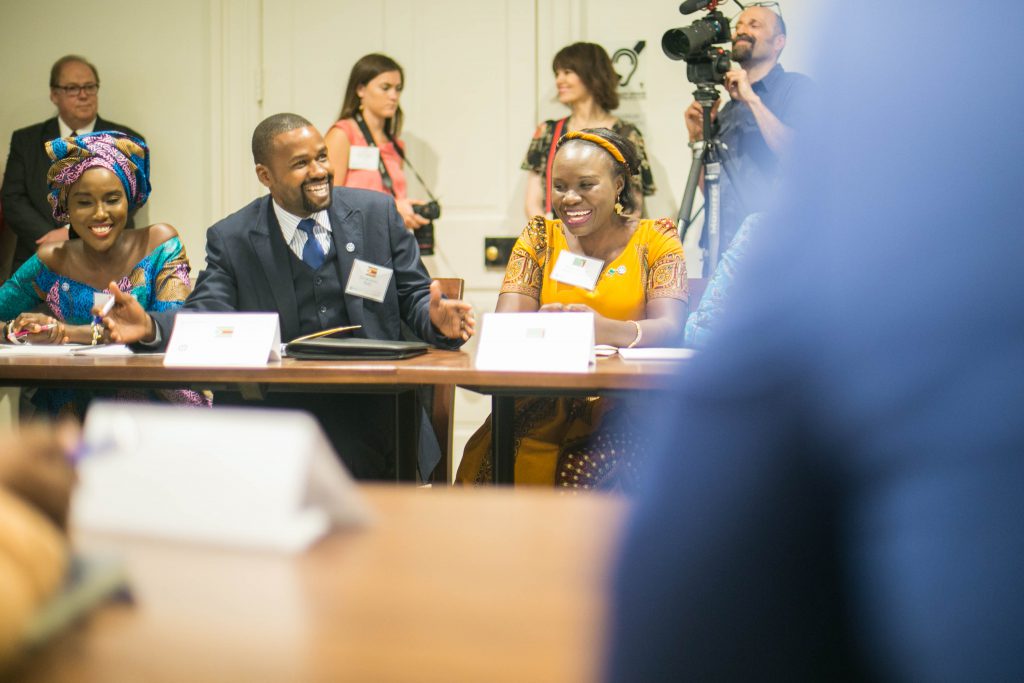
It is not easy to sing alone.
At this stage, Greg asked a fundamental question: “How many of you ever felt alone, and that in the work that you are doing, you are like a voice in the wilderness?”
He went on to say that it is not easy to sing alone. When like minded people from different parts of Africa come together, they are seeking other lone voices so that in hearing other voices, their own voices may be enhanced and reach further – the main purpose being to make a difference in Africa and the world. As Landa Mabenge from South Africa put it, we needed to connect with each other and to learn from each other. I call it “connecting struggles!”
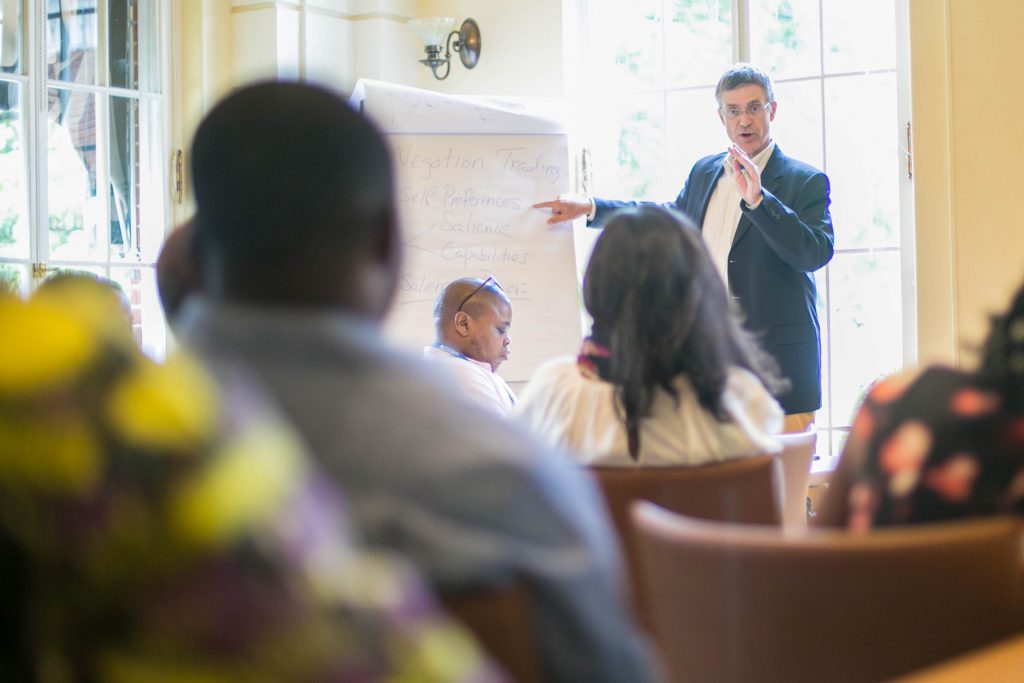
Dr. Stam would later teach on the great skill of listening to 120 instrumentalists and hearing every single instrument, and still playing one’s own without losing the harmony. Amazing, isn’t it?
Answering the Call to Leadership
The deepest plea was made at the high note by Senator Tim Kaine when he gave his key note address in the historic Rotunda, (the centre of President Jefferson’s University) during a luncheon hosted by the Precinct for 2017 Fellows. He said that from his experiences, he has learnt that public service is fulfilling because one can clearly see the difference that they would have made. He said many times he speaks to young leaders who avoid public service or running for office because they believe that politics is very bad. He said that the young leaders had a duty to change that reality.
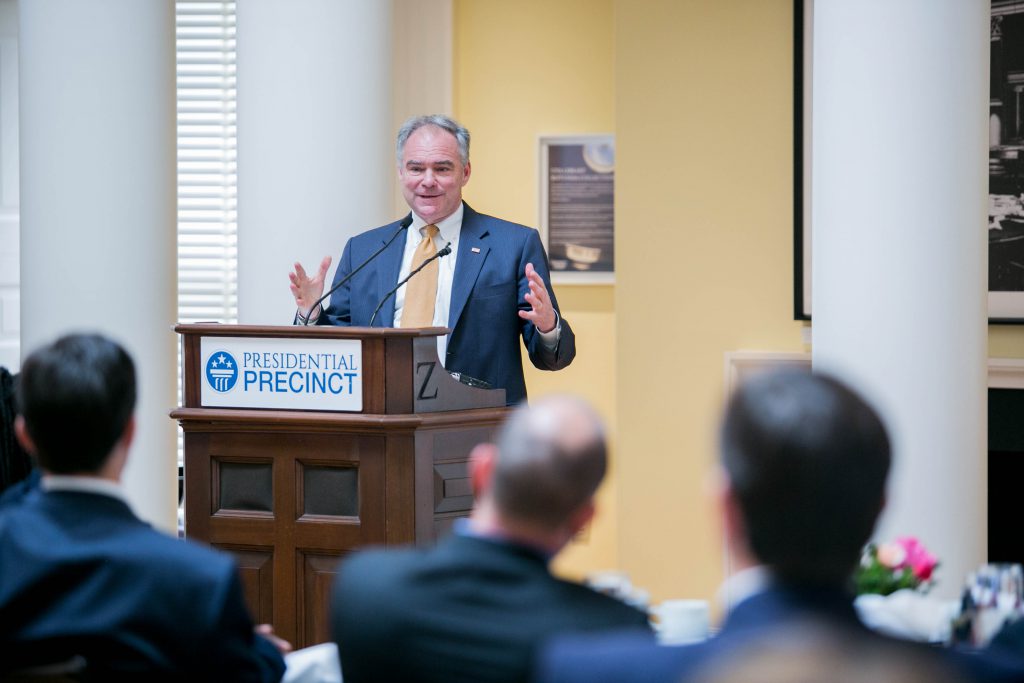
“It’s so important, “ he said, “That people who have the passion that you do consider doing the hard work of politics and government, and encourage others to do it… Whatever your passion is, I hope that in the many chapters that make up your life, that part of how you exercise that passion is serving the government of your country.”
He spoke like he knew me. I was on table number two. And he was actually looking at me. Well, every fellow may have felt the same. I had watched this man on TV as Secretary Hilary Clinton’s running mate. And yet he spoke so simply like a brother to a brother, a father to a son – like he knew me.
The Power of Inspiration
I looked around the room and it was festive and colourful. Many women and men of honour, power, influence and inspiration surrounded me. I saw President Sullivan who was on the same table with me. Next to her was Ben Rhodes, President Obama’s Chief Advisor. Next was Neal Piper, the Executive Director of the Presidential Precinct. And I was next. On the next table was Virginia’s most celebrated celebrity couple – Renee and John. Yes, John Grisham. I had met them both just before the lunch. I had spoken with John for a while after I caught him red-handed pretending to be ordinary. And he said something to me that the human rights community in Zimbabwe ought to hear: he salutes human rights lawyers in Zimbabwe for all the terrific work that they do under terrifying circumstances.
This was inspiring! But there was another side to this. This is what one fellow Jeanine Abatan from Benin meant when she said she wanted to paint the positive image of Africa. We are not all about war or poverty. While we were inspired, we too were ready to inspire big time. I remembered the words of Nicole Finnemann just before the Pre-Departure Orientation in Harare.
“There are roughly 2,467 moving parts and everyone is playing a different role.” At that time, I was drowned. My role at that moment was to feel the full power of inspiration. To feel good. To feel Presidential. Well, after all, everything – Nikki had added, everything was by design. It was good to feel good. The problems ahead in our country are wicked. But perhaps the way to go, was to start by believing that we, as young people, have a major role in solving these problems. But this is what the designers of the Mandela Washington Fellowship wanted.
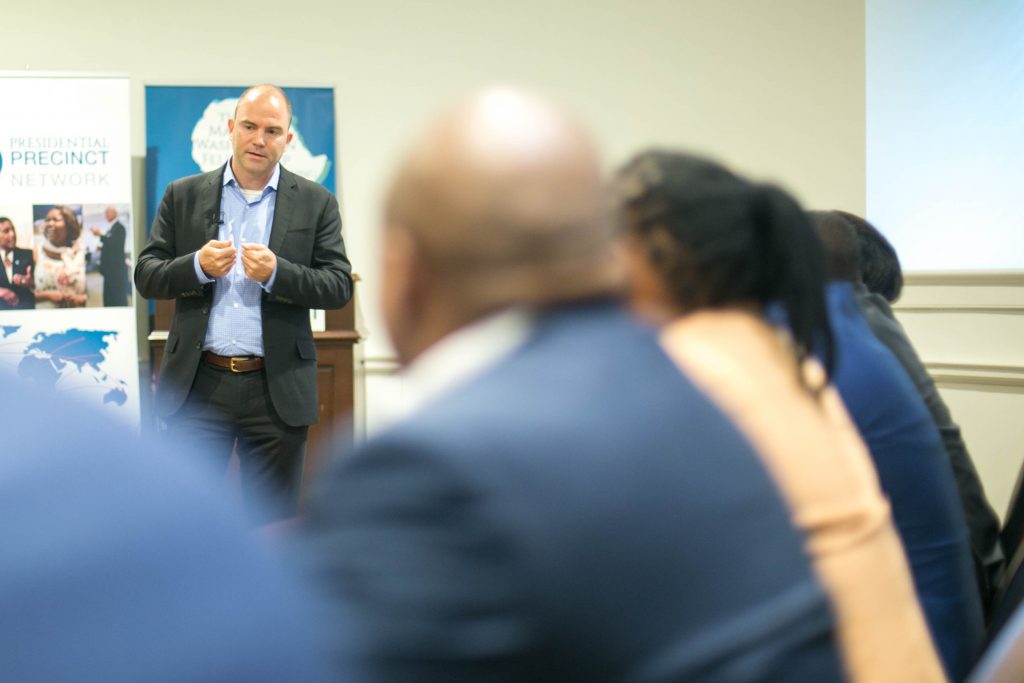
Later that evening we were to hear that from Ben Rhodes who facilitated a roundtable discussion with Fellows. Ben said that the programme was designed to foster Pan – Africanism among young African leaders. He said that the Obama Foundation would continue to work with young people across Africa. He encouraged the fellows to continue being involved in solving problems.
“If you start solving a problem,” he concluded, “even if you do not want to run for office, you are entering politics.”
This was it. The pieces were moving.
—
Dzikamai is a Zimbabwean author and researcher currently taking part in the Mandela Washington Fellowship for Young African Leaders at the Presidential Precinct. In Zimbabwe he works for the Zimbabwe Human Rights NGO Forum, coordinating the activities of the National Transitional Justice Working Group (NTJWG). This article was originally published on his blog www.dzikamaibere.com

